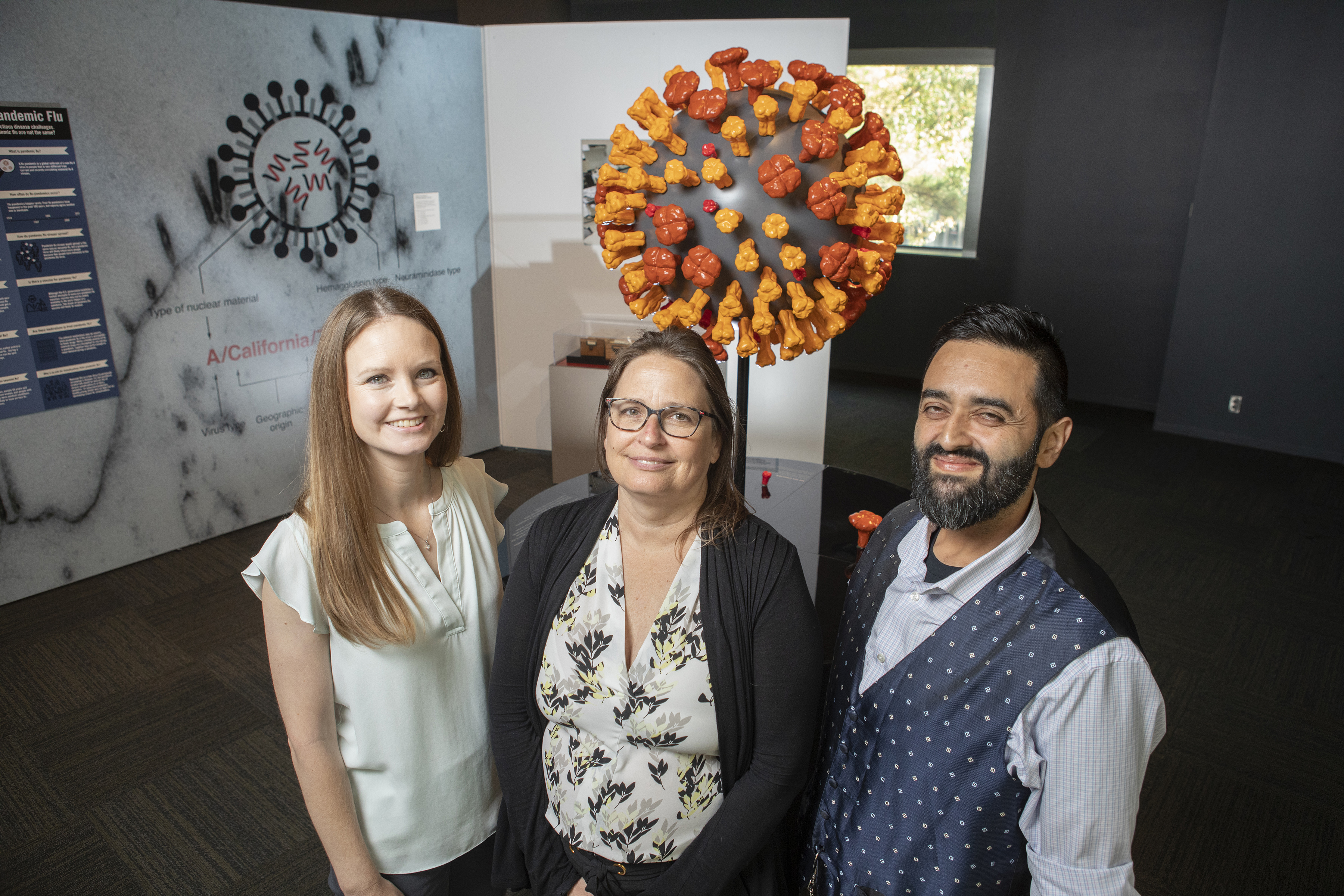
The University of Georgia (UGA) and the Georgia Tech Research Institute (GTRI), in partnership with the Georgia Department of Public Health, have received a five-year, $17 million cooperative agreement from the Centers for Disease Control and Prevention (CDC) to establish a Pathogen Genomics Center of Excellence (PGCoE).

The Center is intended to strengthen public health response to infectious disease threats and support public health workforce development.
The award is part of a $90 million investment by the CDC to build a network of centers in five states. Each Pathogen Genomics Center of Excellence consists of a health department and one or more academic institutions.
The Georgia Department of Public Health will provide overall leadership and prioritization of center efforts. UGA will be leading the effort to translate new discoveries into usable data and interventions. GTRI will be leading the operations and implementation arm of the Georgia-based center.
Collectively, this work will be focused on transitioning innovations out of academia and into use at public health departments across the United States.
“We really are trying to learn about outbreak epidemiology, those population-scale processes that are impacting disease spread. Patterns of transmission that are really hard to observe,” said Justin Bahl, an associate professor with joint appointments in UGA’s College of Public Health and College of Veterinary Medicine. Bahl will be leading the project at UGA.
More data, better targeting
Molecular epidemiology uses genomic data to learn how pathogens such as the SARS-CoV-2 virus move and infect people within populations. This work is what allows scientists to trace the origins of a virus strain and track its spread as it moves from place to place.
Bahl says that adding pathogen genomic data to traditional epidemiological surveillance could dramatically strengthen the public health workforce’s ability to prevent and mitigate local outbreaks.
“We're going to be able to work closely with these departments of public health, connect the genetic data from the pathogens to the actual population characteristics. That provides information for those public health practitioners to direct their interventions,” he said.
Researchers from GTRI will support the data management, data analytics, and information security needs of the center toward a goal of providing disease information in real time to public health organizations at the local and state levels.
“We want to support public health departments in getting out ahead of pathogen trends,” said Rebecca Hutchins, chief engineer in GTRI’s Advanced Concepts Laboratory. “With COVID-19, we had to stand up new genomic sequencing and data analytics capabilities. In future infectious disease outbreaks, this center will allow us to pivot from a reactive mode – responding to what the virus is doing – to a more proactive mode aimed at quickly taking preventive measures.”
By facilitating ongoing collaborations, the network will help ensure that academic researchers, public health agencies, and others involved in a pandemic response will have systems in place to share crucial information and apply consistent data-gathering techniques. Sampling and sequencing innovations developed at the center will be shared with other centers and public health agencies nationwide.
“The true measure of success for the Georgia-based Pathogen Genomics Center of Excellence will be the increased capabilities of public health departments across the United States to prevent and respond to infectious disease outbreaks,” said Hutchins.
Building on a deep foundation
“We have a very strong infectious disease research community here at UGA, especially with pathogen transmission modeling, and a lot of experience with integrating different types of data,” said Bahl. “There are probably not many other places that have the amount of expertise that's here.”
This work will build on the innovative tools generated from UGA’s interdisciplinary infectious disease research centers, including the Center for Vaccines and Immunology, Center for Influenza Disease Emergence Research, and the Center for Ecology of Infectious Diseases.
“And now we have this center that is focused on taking all this wealth of information that we've generated and these new approaches and methodologies, and apply them at the population level, to inform public health response,” said Bahl.
This project, which will establish the Center for Applied Pathogen Epidemiology and Outbreak Response (CAPE), is the fourth major funding investment the university has received in the past five years.
Bahl is optimistic that this investment in pathogen genomics will create more pathways for data sharing among scientists and practitioners and enhance genomic surveillance nationwide.
“We're active, and we're trying to learn more, translate more to the public health labs and be better prepared collectively to respond to these new threats,” said Bahl. “This investment is about trying to strengthen partnerships with public health. We're part of that effort, building up public health across the board.”
The team
Team members include Tonia Parrott at the Georgia Department of Public Health, Amy Winter, Erin Lipp, Travis Glenn, Magdy Alabady, Liang Liu, Pej Rohani, Susan Sanchez, Mandev Gill, and John Drake from UGA. They will be joined by Rebecca Hutchins and True Merrill at GTRI. The network across Georgia also includes researchers from Emory University, Georgia State University, and Augusta University Medical College of Georgia.
GTRI Communications
Georgia Tech Research Institute
Atlanta, Georgia USA

About GTRI: The Georgia Tech Research Institute (GTRI) is the nonprofit, applied research division of the Georgia Institute of Technology (Georgia Tech). Founded in 1934 as the Engineering Experiment Station, GTRI has grown to more than 2,800 employees, supporting eight laboratories in over 20 locations around the country and performing more than $700 million of problem-solving research annually for government and industry. GTRI's renowned researchers combine science, engineering, economics, policy, and technical expertise to solve complex problems for the U.S. federal government, the state, and industry. For more information, please visit www.gtri.gatech.edu.



